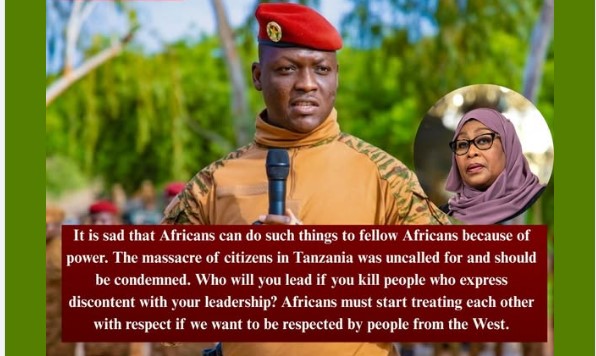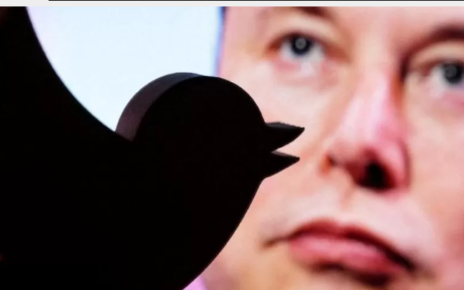Burkina Faso’s military leader Ibrahim Traoré has weighed in on the growing international uproar following a CNN documentary that highlighted alleged mass killings in Tanzania. In a strongly worded statement, Traoré expressed deep disappointment over the reported atrocities, calling on African leaders to respect the dignity and rights of their citizens.
Reacting to the documentary, Traoré said it was “sad and disappointing” that Africans could inflict such violence on fellow Africans simply in the pursuit of power. He stressed that leadership demands accountability and the ability to protect citizens, even those who disagree with the government.
“It is sad that Africans can do such things to fellow Africans because of power. The massacre of citizens in Tanzania was uncalled for and should be condemned,” Traoré said.
He questioned the moral authority of leaders who use force to silence dissent, asking pointedly: “Who will you lead if you kill people who express discontent with your leadership?”
Traoré urged African governments to uphold human rights and open space for criticism, arguing that repression only weakens the continent’s image in the global community. He insisted that Africans must treat each other with respect if they expect the West or other regions to view the continent with dignity.
His remarks add to the political pressure mounting on President Samia Suluhu’s administration, which has been facing sharp criticism from both local and international observers following the documentary’s release. The Tanzanian government has not yet issued a comprehensive response to Traoré’s comments, but the debate continues to intensify across East and West Africa.
As conversations around governance, accountability, and human rights grow louder, Traoré’s message underscores a sentiment increasingly shared across the continent: African leadership must serve the people — not silence them.



